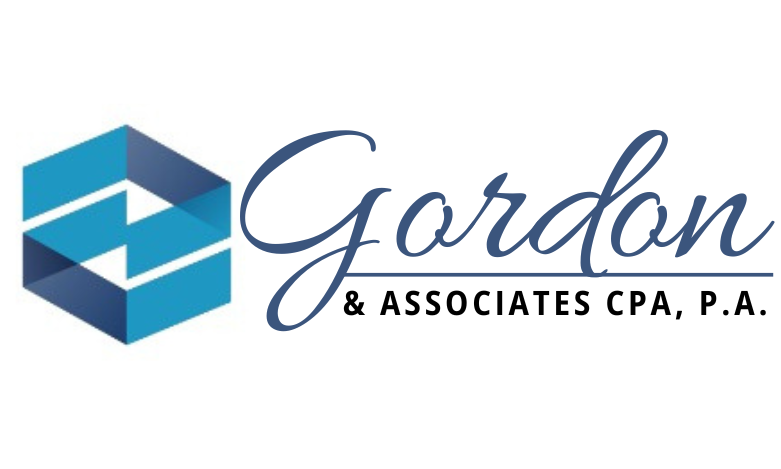Improving Cash Flow During the Holiday Season:
Practical Tips for Small Business Owners

The holiday season is a time of joy and increased activity for many businesses, but it can also bring unique financial challenges. For small business owners, managing cash flow becomes critical during this time, as delayed receivables, increased expenses, and fluctuating demand can strain resources. Proper planning and proactive strategies can help you maintain healthy cash flow and ensure your business thrives during the holidays. Here are some practical tips to help you manage your finances effectively.
1. Forecast Your Cash Flow
Start by forecasting your cash flow for the holiday season. Analyze historical data to predict sales trends, typical expenses, and payment delays during this period. A detailed cash flow projection will allow you to anticipate shortfalls and take corrective action in advance.
Tip: Use accounting software to generate cash flow reports and scenario analyses for better planning.
2. Speed Up Receivables
Delayed payments from customers can create cash flow bottlenecks. Encourage timely payments by implementing these strategies:
- Offer Early Payment Discounts: Provide small incentives for clients who pay their invoices early.
- Send Reminders: Use automated systems to send friendly payment reminders before and after due dates.
- Review Payment Terms: Shorten payment terms for new contracts during the holidays.
3. Manage Holiday Expenses Wisely
The holidays often bring increased costs, such as seasonal inventory, employee bonuses, and holiday marketing campaigns. To control these expenses:
- Set a Budget: Create a detailed budget that outlines all anticipated holiday-related costs.
- Negotiate with Suppliers: Request extended payment terms or discounts from vendors to ease cash flow pressure.
- Avoid Over-Ordering: Use sales data to accurately forecast inventory needs and avoid tying up cash in excess stock.
4. Optimize Inventory Management
Overstocking inventory can tie up cash unnecessarily, while understocking can lead to missed sales opportunities. Strike the right balance by:
- Analyzing Trends: Identify your best-selling products during the holidays and prioritize them in your inventory.
- Using Just-in-Time Ordering: Work closely with suppliers to minimize holding costs while ensuring timely deliveries.
- Clearing Old Stock: Offer discounts on older inventory to free up cash for new purchases.
5. Consider Financing Options
If you anticipate a temporary cash shortfall, securing financing can provide the liquidity you need. Options include:
- Business Lines of Credit: Flexible credit lines allow you to borrow as needed and only pay interest on the amount used.
- Invoice Factoring: Sell outstanding invoices to a factoring company for immediate cash.
- Short-Term Loans: Use these to cover one-time holiday expenses, but ensure you can manage repayment terms.
6. Monitor Cash Flow Regularly
During the holidays, cash flow can change quickly. Regularly review your financial statements to identify trends and make informed decisions.
Tip: Schedule weekly cash flow check-ins to track inflows and outflows closely.
7. Maximize Revenue Opportunities
Boost your cash inflow by capitalizing on holiday demand:
- Run Promotions and Discounts: Offer limited-time deals to encourage immediate purchases.
- Diversify Payment Options: Accept various payment methods, including credit cards, digital wallets, and installment plans, to make it easier for customers to pay.
- Upsell and Cross-Sell: Train your staff to suggest complementary products or services to increase average order value.
8. Plan for the Post-Holiday Period
The cash flow challenges don’t end with the holidays. The post-holiday period often brings reduced sales and lingering expenses. Prepare for this by:
- Building a Cash Reserve: Set aside a portion of holiday earnings to cover leaner months.
- Adjusting Staffing: Transition temporary holiday hires as needed to manage payroll expenses.
The holiday season doesn’t have to disrupt your business’s cash flow. By forecasting accurately, managing expenses, optimizing receivables, and planning for the future, you can maintain financial stability and take full advantage of the seasonal opportunities.
At Gordon & Associates CPA, P.A., we’re here to help you navigate the complexities of cash flow management. If you need assistance with financial planning, budgeting, or forecasting, contact us today to ensure your business thrives during the holidays and beyond.
Subscribe to our newsletter to receive our latest blog directly to your inbox.
- Business Financial Management
- Regulations and Compliance
- Tax Planning and Compliance
- Tax Planning and Strategies
- Conducting a Comprehensive Year-End Financial Review: A Guide for Small Business Owners
 A thorough year-end financial review is essential for assessing your business’s performance and planning for the future. Analyze revenue, expenses, cash flow, debt, and tax obligations to identify areas for growth and improvement. Reviewing key performance indicators (KPIs) and setting financial goals will help you start the new year on solid ground. Need expert assistance with your year-end financial review? Contact us today to ensure your business is positioned for success!
A thorough year-end financial review is essential for assessing your business’s performance and planning for the future. Analyze revenue, expenses, cash flow, debt, and tax obligations to identify areas for growth and improvement. Reviewing key performance indicators (KPIs) and setting financial goals will help you start the new year on solid ground. Need expert assistance with your year-end financial review? Contact us today to ensure your business is positioned for success! - Developing an Effective Budget for the New Year: A Step-by-Step Guide for Small Business Owners
 Start the new year with a strong financial foundation by creating a well-structured budget. Assess your past financial performance, set clear business goals, and accurately estimate revenue and expenses. Allocate funds strategically, prepare for unexpected costs, and monitor your budget regularly to stay on track. Need expert guidance on financial planning? Contact us today to ensure your business is set up for success in the new year!
Start the new year with a strong financial foundation by creating a well-structured budget. Assess your past financial performance, set clear business goals, and accurately estimate revenue and expenses. Allocate funds strategically, prepare for unexpected costs, and monitor your budget regularly to stay on track. Need expert guidance on financial planning? Contact us today to ensure your business is set up for success in the new year! - Improving Cash Flow During the Holiday Season: Practical Tips for Small Business Owners
 The holiday season can bring both opportunities and challenges for small businesses. To maintain strong cash flow, forecast seasonal trends, speed up receivables with early payment incentives, and manage expenses wisely. Optimize inventory, explore financing options if needed, and maximize revenue through strategic promotions. Regular cash flow monitoring and post-holiday planning are key to long-term stability. Want expert guidance on managing holiday finances? Contact us today for personalized financial strategies!
The holiday season can bring both opportunities and challenges for small businesses. To maintain strong cash flow, forecast seasonal trends, speed up receivables with early payment incentives, and manage expenses wisely. Optimize inventory, explore financing options if needed, and maximize revenue through strategic promotions. Regular cash flow monitoring and post-holiday planning are key to long-term stability. Want expert guidance on managing holiday finances? Contact us today for personalized financial strategies!

